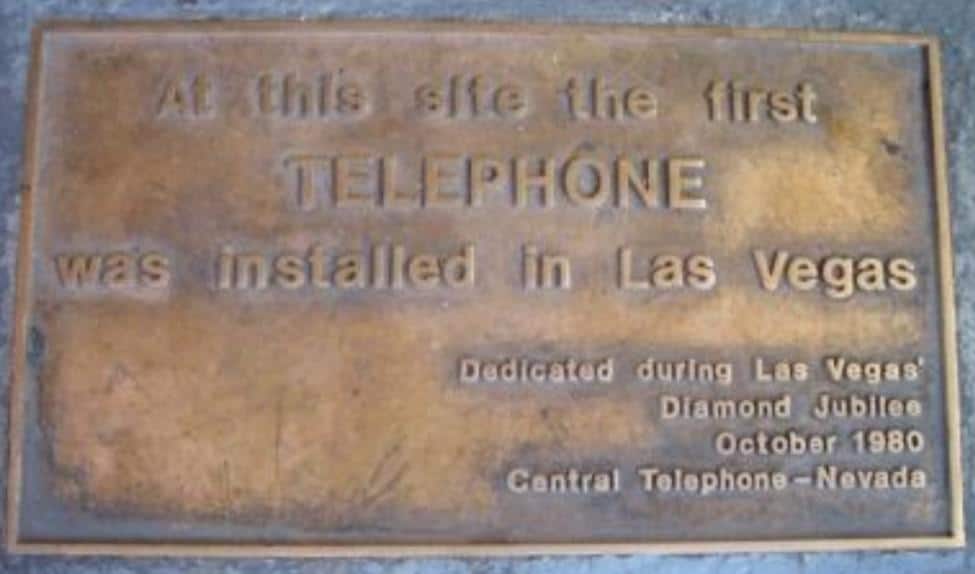
How Las Vegas' First Telephone Exchange Made Bugsy Siegel's Race Wire Possible
Las Vegas, Nevada, is known for its casinos, gambling, and nightlife. But did you know that the city’s first telephone exchange was established in 1909? This early development in telecommunications played a key role in sports betting and the rise of Bugsy Siegel’s race wire.
A race wire is a system that allows gamblers to bet on horse races that are taking place in other locations. It works by transmitting information about the races over the telephone lines. This allows gamblers to place bets in real time, even if they are not at the track.
Bugsy Siegel was a gangster who helped to popularize the race wire in Las Vegas. He saw the potential of the technology to make money, and he set up a number of race wires in the city. These wires allowed gamblers to bet on races from all over the country, and they helped to make Las Vegas a gambling destination.
The first telephone exchange in Las Vegas was established by the Pacific Telephone and Telegraph Company. It was located in the town’s business district, and it had just 100 lines. However, this was enough to support the early race wires, and it helped to lay the foundation for Las Vegas’s future as a gambling mecca.
The race wire was a controversial technology, and it was often targeted by law enforcement. However, it was also a lucrative business, and it helped to make Las Vegas a major player in the gambling industry. Today, the race wire is still in use, and it is a major part of the gambling experience in Las Vegas.
In addition to the race wire, the first telephone exchange in Las Vegas also helped to support other businesses and institutions in the city. It allowed people to communicate with each other more easily, and it helped to make Las Vegas a more connected community. The telephone exchange was a key development in the city’s history, and it helped to pave the way for its future success.
The year 1909 marked a significant milestone in the history of Las Vegas with the establishment of its first telephone exchange. This event signified the dawn of a communication revolution that would transform the way the town and its residents connected with each other and the world at large. The introduction of the telephone exchange was a testament to the town’s progress and its eagerness to embrace modern advancements.
Connecting the Community: Improved Communication Within Las Vegas
The first telephone exchange brought about a revolutionary change in the way the residents of Las Vegas communicated with one another. Prior to its establishment, communication was limited to face-to-face interactions or written correspondence, which could be time-consuming and cumbersome. With the telephone exchange, individuals and businesses could now directly communicate over distances, enabling more efficient coordination, sharing of information, and real-time discussions. This newfound ability to connect effortlessly within the town itself fostered a stronger sense of community and collaboration.
Breaking Barriers: Bridging Las Vegas with the World
The impact of the first telephone exchange extended beyond the town’s borders. With this technological advancement, Las Vegas became part of a larger network that spanned regions and even continents. The ability to make long-distance calls facilitated connections with other cities, enabling business negotiations, family conversations, and social interactions to stretch far beyond the local vicinity. The telephone exchange became a gateway for Las Vegas to engage with the broader world, breaking down geographical barriers and fostering a sense of interconnectedness.
Economic Implications: Enabling Business Growth
The introduction of the telephone exchange had profound economic implications for Las Vegas. Businesses, which previously relied on face-to-face interactions or written communications, now had a direct and instant means of communication at their disposal. Orders could be placed, transactions confirmed, and inquiries addressed without the need for physical presence. This newfound efficiency in communication contributed to the growth of local businesses and further solidified Las Vegas’ role as a regional economic centre.
Empowering Innovation and Development
Beyond its immediate benefits, the first telephone exchange empowered innovation and development in Las Vegas. As communication became more seamless, it opened doors for new opportunities and ideas. Entrepreneurs could discuss concepts, professionals could collaborate on projects, and residents could stay informed about events and developments happening both locally and globally. The exchange of ideas and information spurred intellectual and creative growth within the town, fostering an environment of progress.
Enduring Legacy: A Foundation for Future Communication
The establishment of the first telephone exchange in 1909 left an enduring legacy in Las Vegas. It laid the groundwork for the town’s continued technological advancement and its integration into the broader communication landscape. The principles of efficient communication that were introduced with the telephone exchange continue to shape how Las Vegas interacts and engages with the world today. As the town grows and evolves, the spirit of innovation and connectivity initiated by that first telephone exchange remains a fundamental part of its identity.
The catalyst for Social Change: Connecting Lives
The impact of the first telephone exchange extended into the realm of social change. Communication, once limited by distance and time, was now instantaneous. This had profound effects on how people formed relationships, maintained connections, and shared their lives. Families separated by miles could now stay in touch more easily, bridging the emotional gap brought about by physical distance. Friendships were nurtured through regular conversations, contributing to a sense of camaraderie and community that reached beyond the town’s borders.
Emergency Response and Public Services
The establishment of the telephone exchange also revolutionized emergency response and public services in Las Vegas. With the telephone, residents could swiftly report incidents, accidents, or emergencies, enabling quicker and more coordinated responses from law enforcement, fire departments, and medical personnel. This enhanced communication played a crucial role in ensuring public safety and minimizing the impact of unforeseen events on the community.
Educational Access and Information Sharing
As the telephone exchange became an integral part of daily life, it also played a role in expanding educational access and information sharing. The ability to make inquiries, seek advice, or access resources over the phone empowered individuals to acquire knowledge and skills beyond their immediate surroundings. This democratization of information contributed to personal growth and intellectual enrichment, fostering a more informed and engaged citizenry.
Cultural Impact: A New Era of Connectivity
The introduction of the telephone exchange ushered in a new era of connectivity that transcended geographical and cultural boundaries. As people from diverse backgrounds connected through conversations, cultural exchange naturally followed. The exchange of ideas, traditions, and experiences contributed to a richer tapestry of cultural understanding and appreciation. Las Vegas began to thrive not only as an economic and social centre but also as a diverse perspectives and backgrounds.
Legacy of Progress and Innovation
The legacy of the first telephone exchange continues to shape the fabric of Las Vegas today. Its introduction marked a turning point in the town’s history, propelling it into an era of progress, connectivity, and innovation. As technology has evolved and communication methods have expanded, the foundational principles of instant connection and information exchange initiated by that historic event remain at the core of Las Vegas’ identity. The first telephone exchange serves as a reminder of the transformative power of technological advancements and their enduring impact on the growth and development of communities.
Las Vegas History
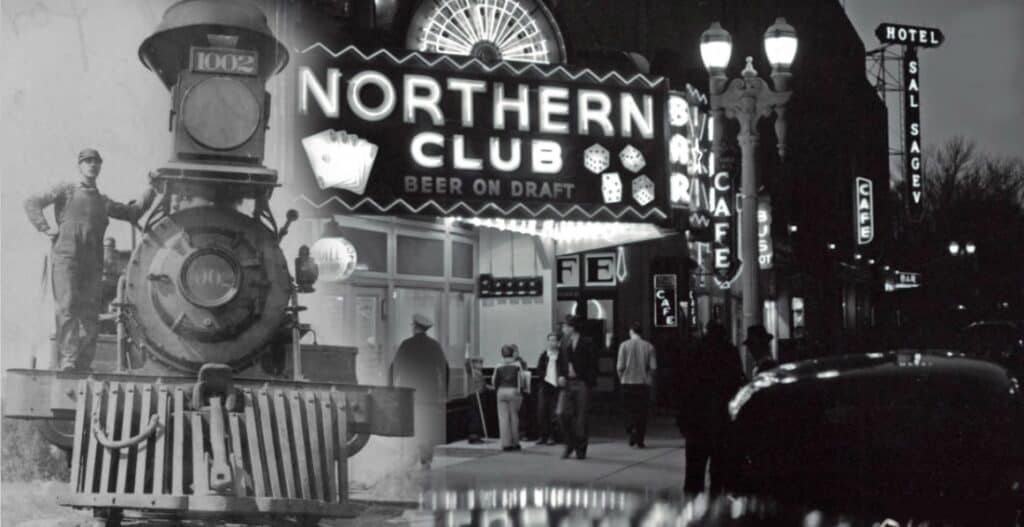
Las Vegas History: Railroad Development Paved the Way for Las Vegas to Become the Gambling Capital of the World
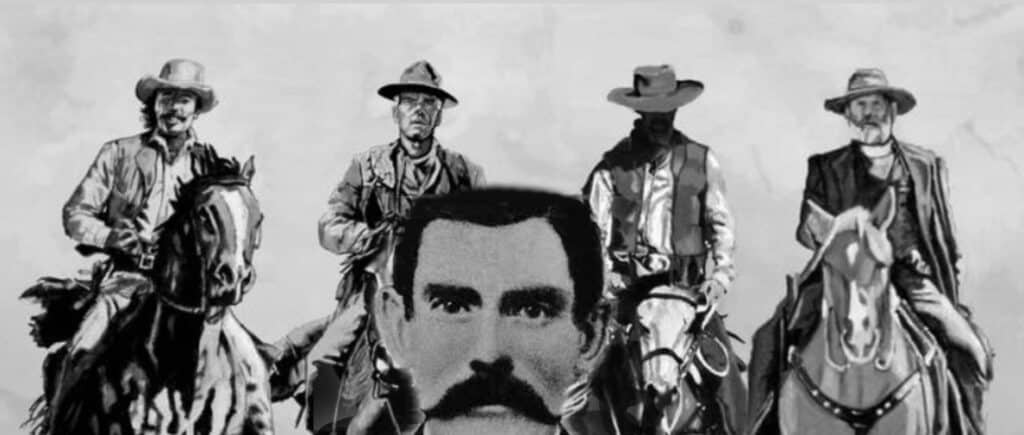
Las Vegas History: Doc Holliday Famous Gambler Gunslinger and Resident of Las Vegas
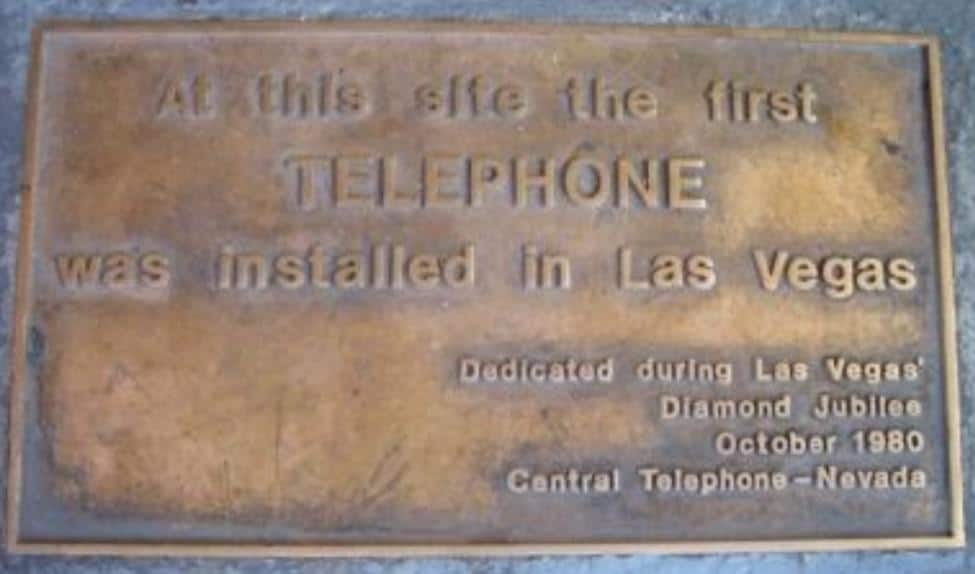
Las Vegas History: How Las Vegas’ First Telephone Exchange Made Bugsy Siegel’s Race Wire Possible

Las Vegas History: The Official Naming of Las Vegas 1905
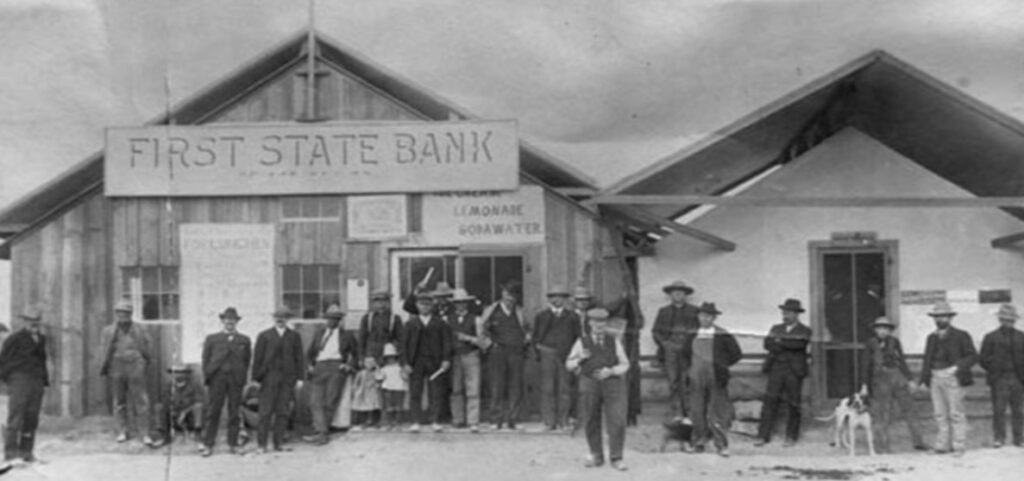
Las Vegas History: 1864 Las Vegas The Impact of Nevada Statehood
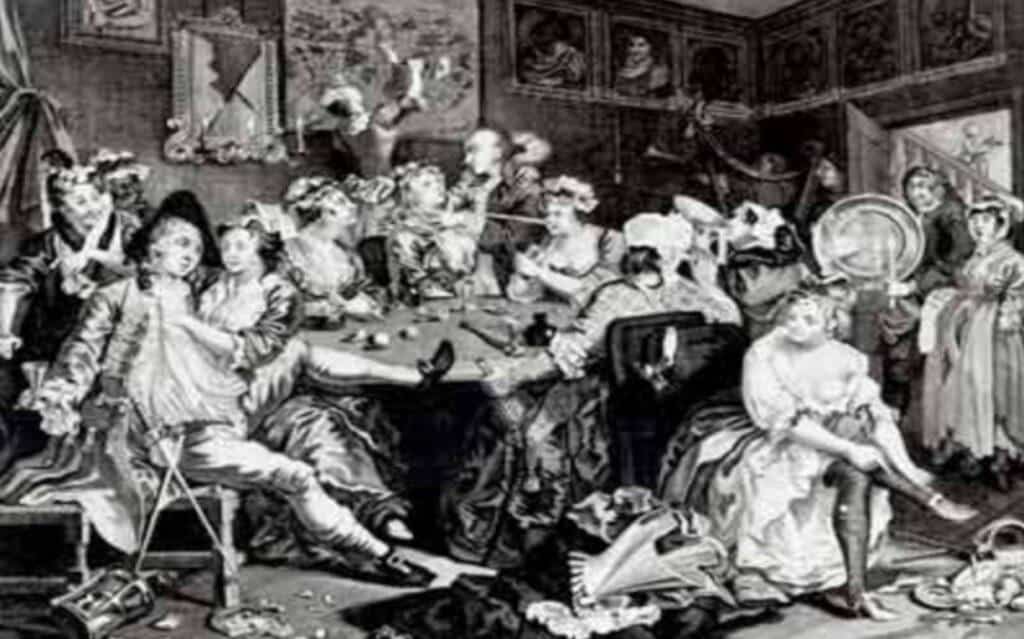
Las Vegas History: Las Vegas and It’s Vices in the 1850s
Frequently Asked Questions (FAQs)
1. When was the first telephone exchange established in Las Vegas?
The first telephone exchange in Las Vegas was established in 1909.
2. What role did the first telephone exchange play in Bugsy Siegel’s race wire operations?
The telephone exchange facilitated Bugsy Siegel’s race wire system, allowing real-time transmission of information for gamblers to bet on horse races happening in different locations.
3. What is a race wire, and how did it contribute to the gambling scene in Las Vegas?
A race wire is a system that transmits information about horse races over telephone lines, enabling gamblers to place bets in real time. Bugsy Siegel utilized this technology to make Las Vegas a prominent gambling destination.
4. Who was Bugsy Siegel, and how did he contribute to Las Vegas’ gambling industry?
Bugsy Siegel was a gangster who played a significant role in popularizing the race wire and contributing to the growth of Las Vegas as a gambling hub.
5. How did law enforcement view the race wire, and what challenges did it face?
The race wire was a controversial technology and often targeted by law enforcement due to its involvement in facilitating off-site gambling. Despite challenges, it proved to be a lucrative business.
6. Is the race wire still in use today, and how has it evolved over time?
Yes, the race wire is still in use today and remains a major component of the gambling experience in Las Vegas. It has evolved with advancements in technology.
7. Who established the first telephone exchange in Las Vegas, and how many lines did it initially have?
The Pacific Telephone and Telegraph Company established the first telephone exchange in Las Vegas in 1909, and it initially had 100 lines.
8. How did the first telephone exchange contribute to economic growth in Las Vegas?
The telephone exchange facilitated more efficient communication for businesses, contributing to their growth by enabling direct and instant communication, order placements, and transactions.
9. What broader impact did the first telephone exchange have on Las Vegas beyond gambling?
The telephone exchange connected the community, breaking down geographical barriers, fostering economic growth, and empowering innovation and development in various sectors.
10. What is the enduring legacy of the first telephone exchange in Las Vegas?
The first telephone exchange left an enduring legacy by shaping how Las Vegas connects and engages with the world. It remains a fundamental part of the town’s identity, contributing to its continued growth and technological advancement.





